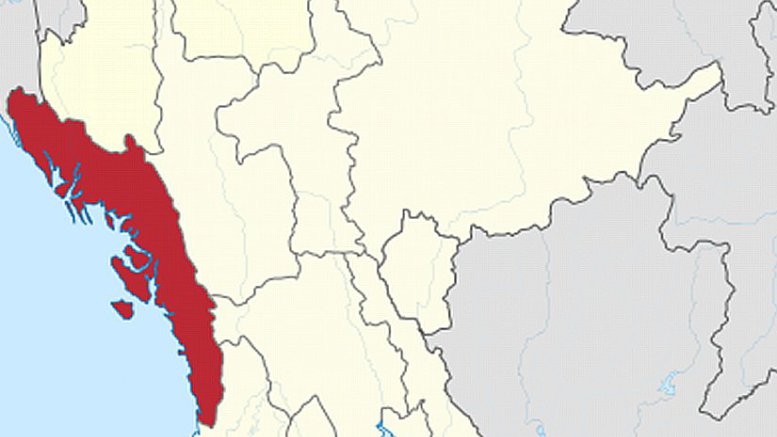Deeply concerned about the safety and wellbeing of civilians in the northern part of Rakhine state in Myanmar, United Nations entities today urged the country’s authorities to take immediate actions to address humanitarian and human rights situations.
The Office of the UN High Commissioner for Refugees (UNHCR) urged the Myanmar Government to immediately allow humanitarian actors to resume the life-saving activities for some 160,000 civilians, which were suspended on 9 October.
“We are urging the Government of Myanmar to ensure the protection and dignity of all civilians on its territory in accordance with the rule of law and its international obligations,” UNHCR spokesperson Adrian Edwards told reporters at the regular news briefing in Geneva.
Rakhine state has been plagued with violence between ethnic Rakhine Buddhists and Rohingya Muslims, a minority group.
According to the Office of the UN High Commissioner for Human Rights (OHCHR), tens of thousands of people have fled their homes amid a security operation triggered by armed attacks on border posts in October. Residents, including members of the Rohingya minority and other Muslim communities, are reported to have suffered serious human rights violations including torture, rape and sexual assault, summary executions, and the destruction of mosques and homes.
OHCHR said humanitarian programmes providing health, food, education and nutrition assistance have been suspended and civilians are reported to be caught up in military action including attacks by helicopter gunships.
“We appeal for calm and for humanitarian access to assess and meet the needs of thousands of people who have reportedly been displaced from their homes by the ongoing security operation. The affected population is believed to be in urgent need of food, shelter and medical care,” said the UNHCR spokesperson.
UNHCR is also appealing to the Government of Bangladesh to keep its border with Myanmar open and allow safe passage to any civilians from Myanmar fleeing violence, he added.
Meanwhile, a UN human rights expert has called on the Government of Myanmar to immediately tackle the deteriorating human rights situation in northern Rakhine state, noting that a two-day visit by a Government-led delegation to the area in early November, which included a UN official and nine ambassadors, had produced only limited results in terms of addressing the humanitarian crisis.
“The Government has now admitted using helicopter gunships in support of ground troops, and there are unverified claims of reprisals against villagers who had shared their grievances with the delegation,” said the UN Special Rapporteur on the human rights situation in Myanmar, Yanghee Lee.
She criticized the authorities for placing the region on “lockdown” for six weeks and expressed particular concern at reports from the area that the security operation had been stepped up since the international delegation conducted its visit.
“It is not acceptable that for six weeks there was a complete lockdown, with no access to the affected areas,” she said.
“The security forces must not be given carte blanche to step up their operations under the smokescreen of having allowed access to an international delegation. Urgent action is needed to bring resolution to the situation,” she added.
Ms. Lee said allegations of human rights abuses, including the alleged rape and sexual assault of women and girls, needed to be investigated.
“State Counsellor Aung San Suu Kyi has recently stated that the Government is responding to the situation based on the principle of the rule of law. Yet I am unaware of any efforts on the part of the Government to look into the allegations of human rights violations,” said Ms. Lee.
It is crucial to recognize the issue at hand – as objectively as possible – and immediately embark on a transparent, non-partial, independent investigation, she said.
Ms. Lee echoed a statement by the Chair of the Rakhine Advisory Commission, former UN chief Kofi Annan, for all communities to renounce violence and for security services to act in full compliance with the rule of law.
She expressed hope that even before the Commission publishes a report next year, the Government would start taking interim measures in line with past recommendations to prevent further restrictions and violations of human rights suffered by the Rohingya population as well as other religious and ethnic minorities.
Source: Eurasia Review









